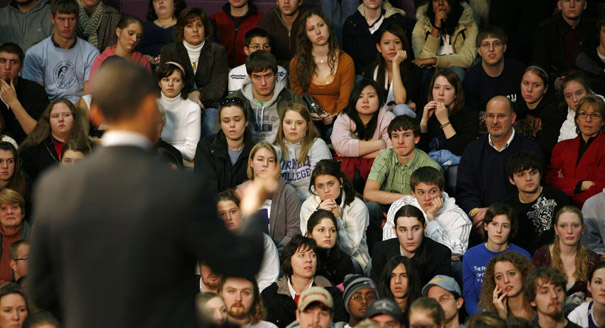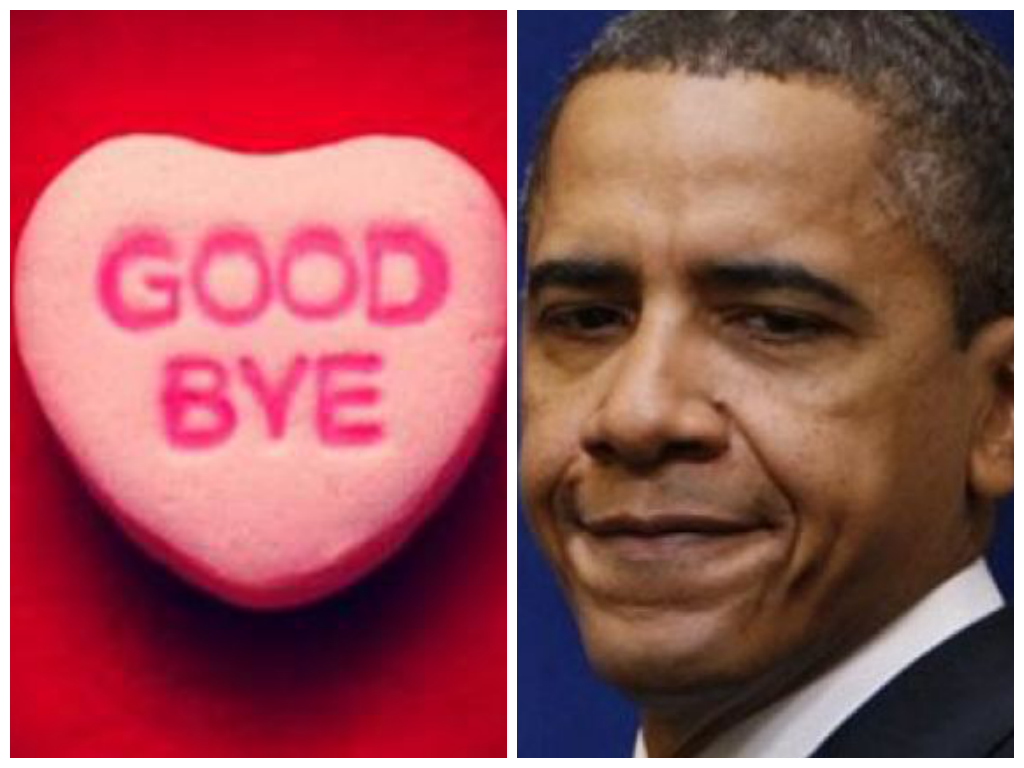Apparently my generation is a real handwringer. We’re the “cheapest generation.” We’re the “self[ie] generation.” We’re the “me me me generation.”
Videos by Rare
Basically, we’re the worst.
But what, specifically, are we doing that’s so terrible? Well, for starters, many of us aren’t joining either major party: A full 50% of Millennials consider themselves political independents.
And we’re not going into debt for big purchases like cars and houses. (Something tells me the youth unemployment crisis and college costs which have inflated way past summer job earnings could have something to do with this—just a guess.)
We refuse to believe we aren’t the victims of the greatest Ponzi scheme ever—by which I mean, of course, that more than 50% of Millennials know we won’t get any Social Security benefits.
And—horror of horrors—we have ever-diminishing faith in establishment politics.
Now, to me, this all sounds like great news. I’m happy to see my generation thinking outside of the two-party box, trying to manage their money sensibly and taking a realistic view of our future and our government. After decades of mismanagement by our elders, which has produced a state of constant warfare and a $17 trillion-plus national debt, this kind of reevaluation of what it means to be a responsible (young) adult in America strikes me as a good thing.
But my optimism isn’t shared by everyone. Calling it a “remarkable shift,” New York Times columnist David Brooks is worried Americans are increasingly uninterested in solving the world’s problems through big government and war, as opposed to global engagement through peaceful and productive trade, cultural exchange, and activism.
“Americans have lost faith in the high politics of global affairs,” Brooks says of this new attitude of political humility and social optimism, “They have lost faith in the idea that American political and military institutions can do much to shape the world. American opinion is marked by an amazing sense of limitation—that there are severe restrictions on what political and military efforts can do.”
Brooks calls this new antipathy for big government and war the “Leaderless Doctrine.”
 Brooks dismisses cooperation as naïve, casts Millennial skepticism as a serious problem, and longs for a personally charismatic leader to re-charm Americans into acceptance of political and military authority as the solution to the world’s problems (yes, seriously).
Brooks dismisses cooperation as naïve, casts Millennial skepticism as a serious problem, and longs for a personally charismatic leader to re-charm Americans into acceptance of political and military authority as the solution to the world’s problems (yes, seriously).
Brooks’ analysis is particularly egregious—and, hopefully, on the wrong side of history—but it’s hardly isolated. Editorializing about Millennials being too independent, too unwilling to accept establishment authority structures and institutions is now common.
Fortunately, we have some defenders. Nick Gillespie of Reason encapsulates perfectly the illogic behind much of the handwringing over my generation:
That discomfort you’re sensing all around you? It’s the American Establishment loading its Depends diapers over the prospect of a younger generation that is turning its back on political parties and other zombified artifacts of our glorious past.
As Gillespie argues, the political independence my generation is developing is a good and corrective reaction to years of stagnant, special interest-ridden politics. We’ve noticed that neither the Republican nor the Democratic establishment has our best interest at heart, and we’re moving on to new and better options.
But like a dysfunctional boyfriend who always seems to be asking for a second, third, fifth, and tenth chance, the establishment isn’t ready to give up on Millennials just yet. It’s happy to call us names, but it just wants to get back together, baby. “We can make this work!”
Actually, we can’t make it work. And it’s not us. It’s you.
Like every generation, Millennials have our flaws—but political independence isn’t one of them. We’re becoming a generation that is conservative with our money and disinterested in running other people’s lives for them.
This is good news, and no cause for dismay for anyone except the moribund political establishment we’re no longer willing to support.
The days of political brand loyalty are over. Millennials are demanding politicians offer us a product we actually want.
So, yeah, we take a few too many selfies. So what? Every age has its silly fads, and if history tells us anything, these superficialities are hardly the best rule by which to measure an entire generation. Instead, measure us by our interest in innovation and community, in making our own choices and creating new institutions, in grassroots activism and principled pragmatism.
Millennials’ love of independence may not prove better than the establishment politics we’ve rejected—but maybe it will, and that’s a risk worth taking.



